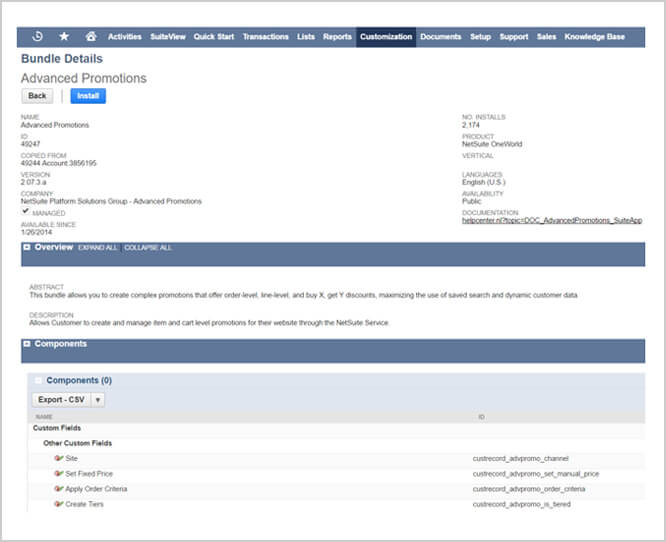Application Packaging and Distribution SuiteBundler
Home / Application Packaging and Distribution SuiteBundler
Menu
Package and Deploy SuiteCloud Applications and Customizations
SuiteBundler makes it easy for partners and customers to package and deploy customizations and applications built on the SuiteCloud platform. Whether a NetSuite customer moving customizations from a sandbox environment to production or an ISV or SI looking to package industry or domain expertise for distribution to end customers, SuiteBundler lets you easily bundle groups of customizations, manage versioning and deploy customizations nearly instantaneously.

ISV Benefits
- Easily distribute NetSuite-based solutions to end customers
- Rapidly package commercially available applications by selecting from a host of custom objects
- Version management makes it easy to roll out new versions of applications to end customers.
Customer Benefits
- Easily move customizations from sandbox to production environment
- Manage customizations effectively by packaging them up quickly and easily
- Simply move customizations between NetSuite accounts.
Key Features
Package Custom Objects Together Rapidly
- Bundle* Builder provides an easy three-step graphical assistant to select and create bundles
- Select and package elements such as user roles or custom tabs, database elements such as custom fields and custom records, SuiteScript application development elements and more
- Install either customization bundles that are a group of custom objects, or configuration bundles that package setup or preference settings.
Distribute Customizations Using a Variety of Deployment Options
- Set SuiteBundles as private, public or shared
- Easily prototype and install selected customizations using private bundles
- Make applications available to all customers of NetSuite with public bundles
- Commercially distribute applications to specific NetSuite accounts using shared bundles
Powerful Models to Install Bundles
- Install directly from the bundle’s development account to a target account with direct bundle deployment
- Deploy a version of the bundle to new customers, while enabling development of a newer version of the bundle using Repository Deployment
- Deployment accounts use a dedicated account for deploying bundles, ideal for ISVs that must support currently deployed bundles while simultaneously developing subsequent versions.
SuiteBundle and SuiteApp are the same thing and we use the term interchangeably on our site
































